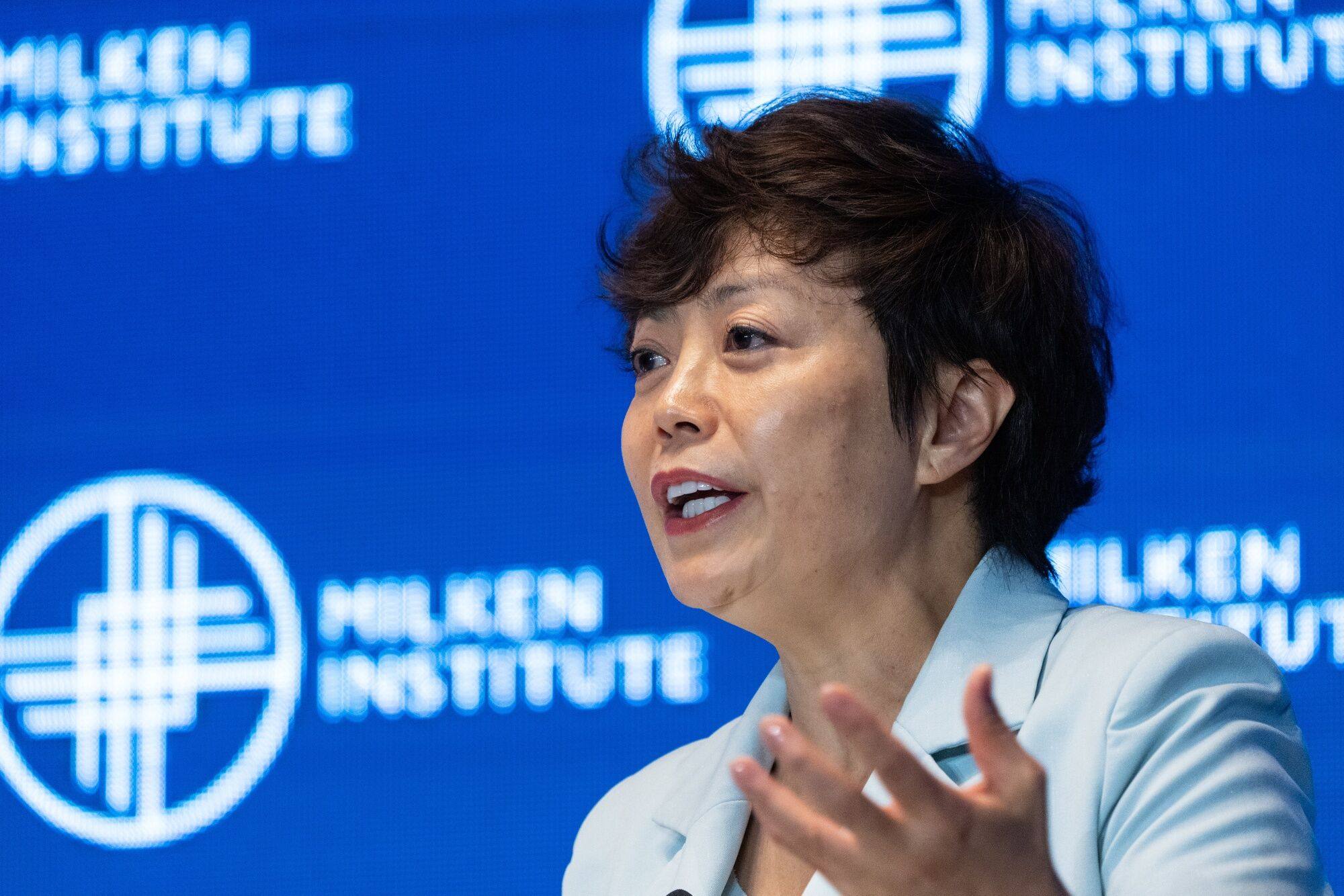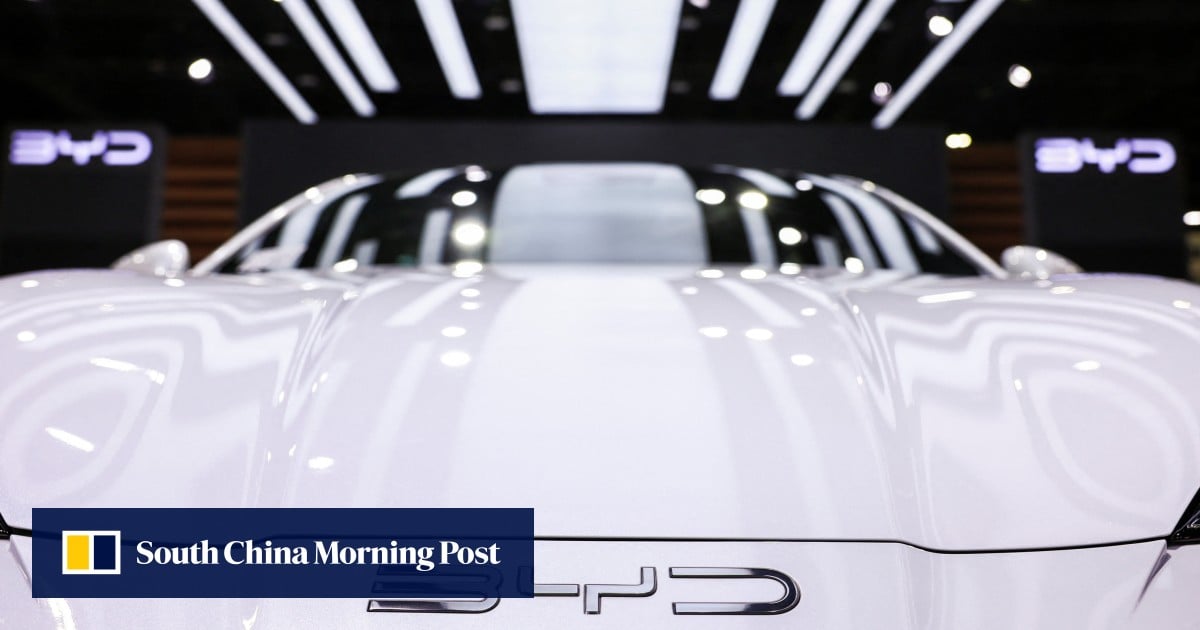The Shenzhen-based carmaker, which counts Warren Buffett’s Berkshire Hathaway among its shareholders, said revenue climbed 42 per cent to 602.3 billion yuan in 2023 following record deliveries of new energy vehicles (NEVs). These include pure battery-run EVs, plug-in hybrids and fuel-cell vehicles.

“In the automotive sector, we will strengthen the research and development and independent control of core technologies, and continue to enhance product competitiveness,” Wang Chuanfu, chairman and CEO, in a statement on Tuesday.
BYD will also quicken overseas expansion to “help China’s automotive industry take the lead in the global NEV boom”, he added.

BYD shares advanced 2.4 per cent to HK$216 in Hong Kong trading on Tuesday. The stock has risen 3.9 per cent over the past 12 months, and rallied 357 per cent over the past five years, as rapid EV adoption by local consumers has turned China into the biggest market worldwide.
BYD delivered 3.02 million NEVs to customers at home and abroad in 2023, a 62 per cent increase from 2022.
Most of them were sold in mainland China, with 242,765 units, or 8 per cent of the total volume, recorded in export markets. In its report card on Tuesday, BYD said its cost-control capability had also helped support earnings.
Tesla cuts prices of all Model 3, Model Y EVs in China to keep buyers
Tesla cuts prices of all Model 3, Model Y EVs in China to keep buyers
Despite a solid operating year, BYD saw sequential slowdown in profitability in the final quarter of 2023.
Net profit slipped 17 per cent to 8.67 billion yuan in the October-to-December period from the preceding quarter as margins came under pressure, given a 38 per cent increase in sales year on year and 15 per cent from the third quarter.
“Quarterly revenue and sales hit records, but its net profit declined,” said Phate Zhang, founder of Shanghai-based EV data provider CnEVPost.
“This should be a result of massive sales promotions and dealer incentives at the end of last year.”
BYD’s operating data for the first two months this year is not encouraging, partly due to the Lunar New Year holiday.
NEV production volume fell 11.6 per cent to 357,360 units, while the sales volume declined 6.1 per cent to 323,804 units, according to its exchange filing on March 1.
Chinese EV makers are facing increasingly stiffer competition amid an intensifying price war. China’s sluggish economic outlook has prompted many EV makers to slash their car prices to entice buyers into showrooms and protect their share of the market.
BYD built its dominance in China by pricing its cars under 200,000 yuan, or some 30 per cent below premium models from Tesla.
Greater Bay Area firms’ expertise will drive EV growth in China: Xpeng, BYD
Greater Bay Area firms’ expertise will drive EV growth in China: Xpeng, BYD
The group announced earlier this month that it would cut the price of its e2 model by 12.6 per cent to 89,800 yuan. It became the fifth electric model from BYD to sell below the 100,000 yuan threshold.
Guangzhou-based Xpeng also announced earlier this month that it would extend a 20,000-yuan discount on its bestselling G6 SUV until the end of March, after deliveries fell in February to a three-year low.
BYD is expected to pause its price cuts in the coming months, after it finishes its latest major update to most models, Zhang said.
“[EV use] in Brazil was 0.8 per cent at the beginning of last year, but at the end of last year it was 5.7 per cent,” BYD’s executive vice-president, Stella Li, said at the Milken Institute’s Global Investors Symposium in Hong Kong, after arriving from Brazil. “I think it’ll reach 15 per cent this year,” she added.
BYD also launched a premium battery-powered sedan in India this month.

